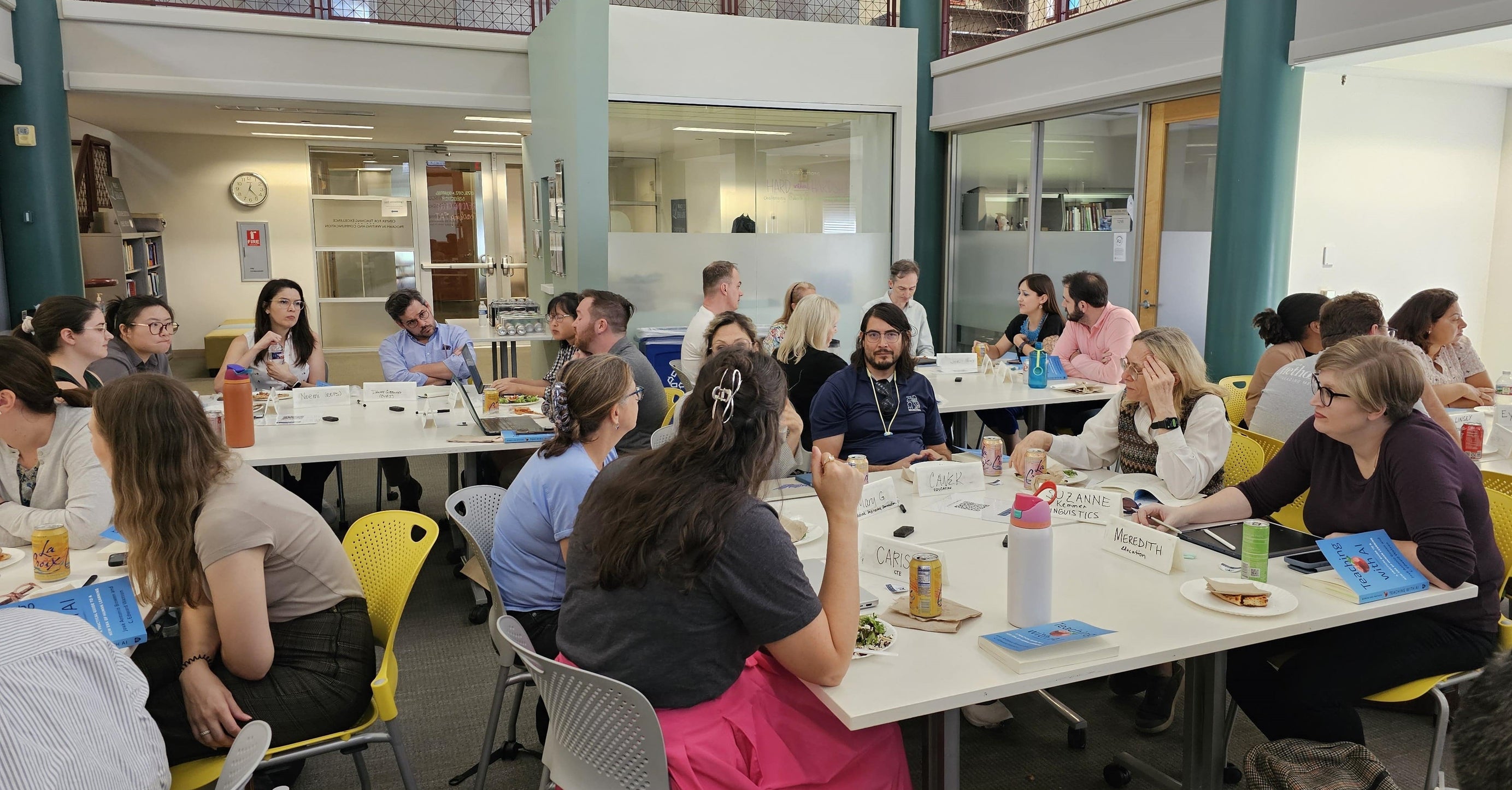The Rice Center for Teaching Excellence (CTE), in partnership with Rice Online Learning and OIT Teaching and Scholarly Learning, launched its Fall 2024 reading group on September 17th, focusing on Teaching with AI: A Practical Guide to a New Era of Human Learning by José Antonio Bowen and C. Edward Watson. The reading group drew interest from across campus, with over 100 faculty, staff, and graduate students registered for the first session. The group engages participants in meaningful discussions about the transformative role of AI in education.
The book Teaching with AI explores how artificial intelligence reshapes learning environments and offers educators practical tools for integrating AI into their classrooms. It covers crucial topics such as maintaining academic integrity, fostering creativity, and maximizing AI's potential as a teaching resource.
Top 5 Insights from Session 1
The first session of the reading group covered key insights into how AI can be effectively integrated into teaching. Here are five major takeaways:
1. AI Produces "C-level" Work:
Participants noted that while AI is effective at generating average, "C-level" work, it struggles to perform at the level of top students. This lack of originality is because AI aggregates vast amounts of data, producing responses reflecting the average outcome.
2. Modeling Responsible AI Use:
Faculty emphasized the importance of demonstrating responsible AI use in the classroom. Rather than using AI as a shortcut, it should be integrated into workflows to enhance learning, not to bypass critical thinking.
3. AI's Potential to Boost Student Learning:
AI can support deeper learning. Instructors discussed leveraging AI tools to improve student engagement but noted that crafting specific, effective prompts is essential for guiding AI toward more valuable and insightful outputs.
4. Language Limitations of AI:
One professor shared that while experimenting with AI in multiple languages, English-based responses were typically more robust than those generated in Spanish. This highlighted the possible current limitations of AI in multilingual education.
5. AI in Linguistics Research:
Suzanne Kemmer, associate professor of Linguistics and Cognitive Science, discussed a fascinating project where Rice students explored how ChatGPT could evaluate whether language in texts sounded natural, like that of a native speaker. The students focused on identifying atypical word choices or unusual synonyms, such as saying "powerful tea" instead of the more natural "strong tea," to see if the AI could detect non-native-like language patterns.
Looking Forward
As the group continues, participants will explore how AI could evolve in the classroom over the next few years. Discussions will cover potential applications and the ethical considerations of this technology.
Join the Next Sessions!
It's not too late to participate in this exciting and insightful reading group. There are still two more sessions, and all Rice faculty, staff, and graduate students are encouraged to join in exploring AI's role in education.
- Thursday, October 17th
- Thursday, November 21st
Sessions run from 12:00 PM to 1:00 PM, so take advantage of this opportunity to engage with peers and discover how AI can elevate teaching strategies!
To Register: Click Here

